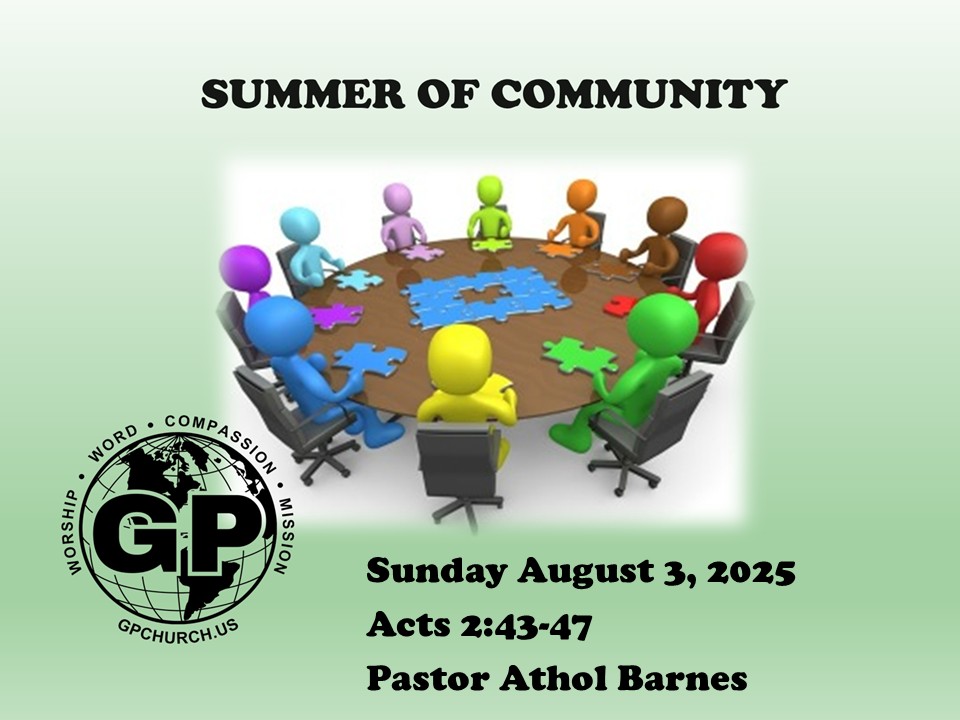
I’ve had two trees in our backyard since we moved into our house eleven years ago, both of which grew rapidly and quickly exceeded my ability to manage their growth.
As I was thinking about this problem, I realized that this is a common problem in churches that are experiencing growth. When the growth exceeds the capacity to manage the growth, the result is a poorly maintained organization that leaves people frustrated on the outside and burnt out on the inside.
Growth can be challenging, so how does a healthy church grow?
The early church is a model of church health and, as we have seen in Acts 2:42, there were 4 distinctive indicators of a healthy church: they were devoted to the Apostles’ teaching, to a healthy community, to breaking bread together and to prayer. These are four devotions of a healthy church that lead to dramatic results as we read in Acts 2:43:47.
An awe-filled church (vs. 43)
The apostles had walked with Jesus; they had seen his many powerful miracles, and they began to do the same things. Signs and wonders are for the express purpose of bringing glory to God. Today, all over the world, amazing miracles are happening, and their primary purpose is to declare the glory of God and the Gospel message. We see this throughout the book of Acts; signs and wonders lead to people being saved. Awe came upon everyone as they recognized a greater power at work; they couldn’t ignore that God was working in power and it caused a reverent fear (see Hebrews 2:3-4).
A unified church (vs. 44)
The church was in its infancy. There were no arguments over doctrine or opinions about buildings and programs. They were unified in their devotion to the gospel. A church that is devoted to the things of God will be a unified church.When we lack unity, we have likely lost our purpose and our focus. The early church had an intense feeling of responsibility towards one another which was an answer to Jesus’s prayer (see John 17:21-22). Many were drawn to the Savior as a result.
A generous church (vs. 45)
This verse is not promoting a form of socialism, rather this was voluntarily caring for each other as they shared their wealth to help those in need.
The rapid growth of the early church resulted in many physical needs. During Pentecost, there were Jews from every nation of the world. Many of them stayed in Jerusalem after being converted. They would have quickly run out of money and food, and they needed places to stay. There was an outpouring of generosity as the unity of the church led to caring for these needs.
Generosity must be an essential mark of the church (see 1 John 3:16-18).
William Barclay wrote, “a real Christian cannot bear to have too much while others have too little.”
A rejoicing church (vs. 46)
Daily the believers were celebrating their salvation; they were celebrating that Jesus was alive and that their lives had purpose. They weren’t simply following a religion of going through the weekly and yearly festivals; this new devotion to Christ affected every aspect of their lives.
There was no separation between secular and sacred. They didn’t only gather once a week to dress up in their Sunday best and try to impress others with their holiness. Their lives were transformed by being totally committed to the Lordship of Jesus, and it affected every aspect of their lives.
This is such a challenge for us in the western culture. We have bought into the idea that we can be Christians so long as we attend church regularly and give to the church. This is not what it means to be a follower of Jesus. Being a Christian affects every minute of every day of our lives, whether it is at home, work, school or in fellowship with other believers.
We don’t add Jesus to our lives; we give our lives to Jesus. That is Lordship and real Christianity.
An attractive church (vs. 47)
There have been many books written and seminars held regarding the subject of church growth, encouraging churches to change the decor, the music, the lighting, the website, and much more. Some even encourage pastors to reduce the amount of teaching using the Bible, and by all means, please don’t tell people that they are sinners! These books and seminars have made a lot of people rich, but they’ve also fostered a consumer church culture. This culture is so focused on the desires of the attendees that the church forgets its reason for gathering.
This consumer mindset is extremely damaging to the health of the church. If we cater to what people want in order to gather a crowd, we will necessarily deviate from the gospel message.
The church is good at religion, creating a list of things to do that a good Christian should do. But the early church focused not on what they should do but what has already been done by Jesus’ death and resurrection.
The early church praised God for all that He had done. They were not seeking any fame or notoriety; they gave all the glory to God. As a result, they grew in number. People were attracted to the miracles that were being done and to the genuine, authentic worship that the church enjoyed.
True church growth must be a work of God as it is an authentic display of individuals living as followers of Christ which will draw others to want the same.
We can do our part to welcome people and invite people and witness to people, but ultimately Jesus is the one who builds the church (see Matthew 16:18).
Are you contributing your part to a healthy church?

